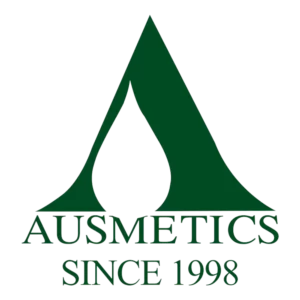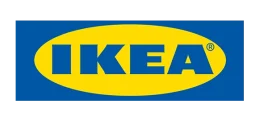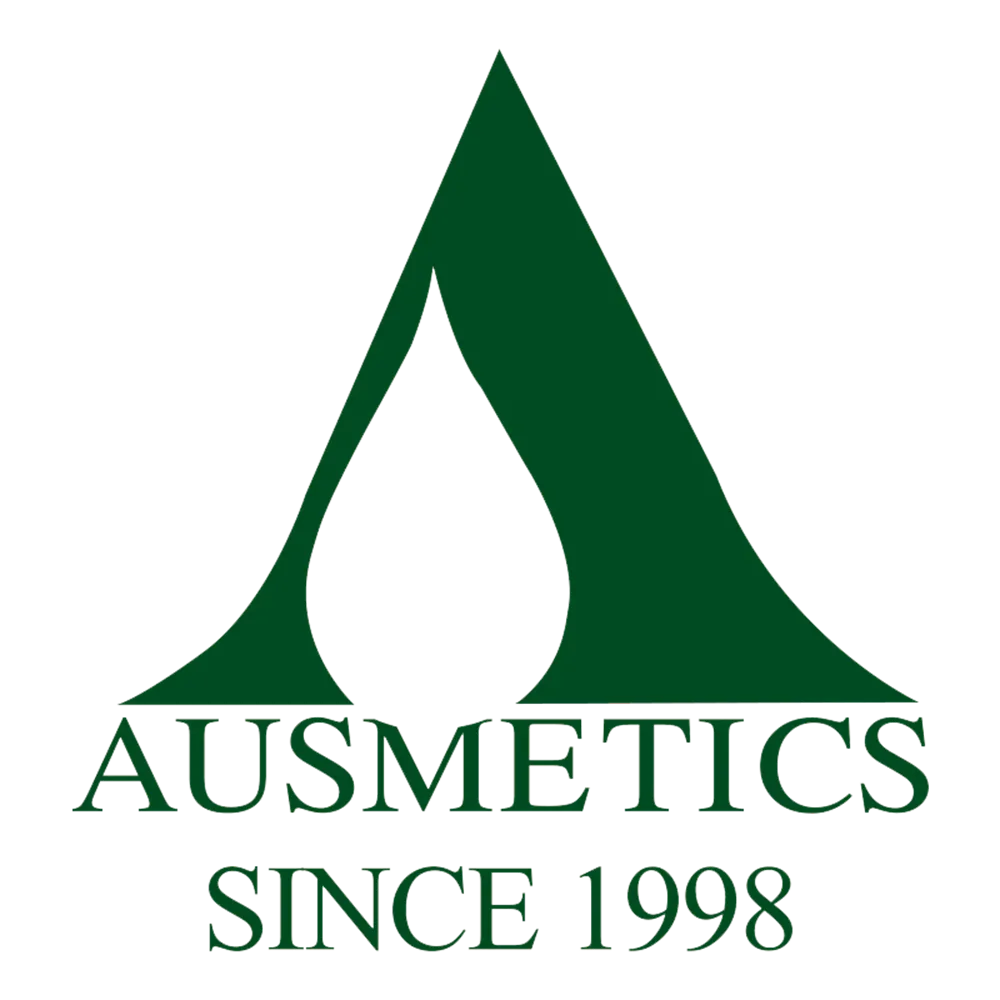Crafting Excellence: A Guide to Launching a Luxury Private Label Cosmetics Brand

by Lucy Chen · Updated Jul. 17, 2023

The cosmetics industry is one of the most dynamic and lucrative sectors in the world. Within this industry, there is a growing demand for luxury products that offer premium quality, exclusivity, and sophistication. Luxury cosmetics brands are not only sought after by affluent consumers who value prestige and status, but also by discerning customers who appreciate innovation, pagganap, and sustainability.
Gayunpaman, launching a luxury private label cosmetics brand is not an easy feat. Brand development and marketing are complex endeavors that require careful planning, strategic decision-making and meticulous execution. From product development to marketing, there are many aspects to consider and challenges to overcome. How can you create a brand that stands out from the crowd, appeals to luxury consumers and ensures that your products meet their high standards of quality and safety? How can you establish a strong presence in the competitive and ever-changing cosmetics market?
In this guide, we will walk you through the essential steps involved in launching a luxury private label cosmetics brand. We will cover crucial aspects such as product selection and development, branding and packaging, regulatory compliance, marketing and distribution, and business scaling and growth. Whether you are a product development manager or an entrepreneur looking to enter the luxury cosmetics sector, this guide will provide you with valuable insights and actionable tips to help you craft excellence.
Talaan ng mga Nilalaman
I. Crafting Your Brand’s Vision and Identifying Your Target Audience
The first step in launching a luxury private label cosmetics brand is to define your brand’s vision and identify your target audience. Your brand’s vision is the core idea that drives your business and guides your actions. It reflects your values, mission, goals, and personality. Target audience is the group of customers that you want to reach and serve with your products.
To craft a solid brand vision, ask yourself the following questions:
● What is the purpose of your brand? Why do you want to create luxury cosmetics products?
● What makes them pop? How do they break away from the pack and outshine other market contenders?
● Your brand stands for something, right? What are those core principles that give your brand its heartbeat? And how do those values connect and resonate with your customers?
● How about the personality of your brand? How do you want to converse with your customers?
To pinpoint your target audience, it’s all about rolling up your sleeves and diving into market research to get a grasp on their desires, tastes, patterns, and motivations. Don’t shy away from getting creative here. You can use different tools like surveys, interviews, focus groups, combing through online reviews, scanning social media trends, studying your competition, and so on.
Here are some aspects to keep an eye on:
● Who exactly are your potential customers? What’s their story in terms of demographics (age, gender, income, location, and the like)?
● What are their psychographics (lifestyle, personality, values, attitudes, interests, atbp.)?
● What are the hurdles they face? What are their dreams and goals?
● How about their shopping habits and tastes? How do they fish for information? What’s their decision-making process like?
By crafting your brand’s vision and identifying your target audience, you will be able to create a clear positioning statement that summarizes what your brand offers, who it serves, how it differs from others, and why it matters. This statement will help you align your product development strategy with your market demand.
II. The Art of Product Selection and Development
The next step in launching a luxury private label cosmetics brand is to select and develop your products. Your products are the core of your brand and the main source of value for your customers. Samakatuwid, you need to ensure that they align with your brand’s vision and meet your target audience’s needs.
To select your products, you need to consider several factors such as:
● The type of products: There are various categories of cosmetics products such as skin care, pampaganda, buhok pag aalaga, pangangalaga sa katawan, fragrance, atbp. You need to decide which ones suit your brand’s vision and your target audience’s preferences.
● The number of products: You need to determine how many products you want to launch initially and how you want to expand your product line in the future. You can start with a few products that cover the essential needs of your customers and then add more products as you grow your brand.
● The price of products: You need to set the price of your products based on your target market, your production costs, your profit margin, and your competitive advantage. You need to balance the quality and value of your products with the affordability and willingness to pay of your customers.
To develop your products, you need to collaborate with a reliable and experienced manufacturer who can help you create luxury formulations that deliver exceptional results. The manufacturer should have the following capabilities:
● Research and development: The manufacturer should have a dedicated R&D team that can conduct market research, trend analysis, ingredient sourcing, formulation testing, stability testing, efficacy testing, atbp. The manufacturer should also have access to the latest technologies and equipment that can support innovation and quality.
● Quality control and assurance: The manufacturer should have a rigorous quality control and assurance system that can ensure that your products meet the highest standards of safety, pagganap, and consistency. The manufacturer should also have certifications and accreditations from reputable organizations that can verify their compliance with industry regulations and best practices.
● Production and packaging: The manufacturer should have a flexible and efficient production and packaging process that can handle different volumes, formats, and specifications of your products. The manufacturer should also have a strong supply chain management that can ensure timely delivery and minimize waste.
By selecting and developing your products with the help of a professional manufacturer, you will be able to create luxury cosmetics products that reflect your brand’s vision and satisfy your target audience’s needs.
III. The Role of Your Manufacturing Partner
Choosing the right manufacturing partner is critical for launching a luxury private label cosmetics brand. Your manufacturing partner is not just a supplier of your products, but also a strategic ally who can support your brand’s growth and success. Your manufacturing partner can provide you with various benefits such as:
● Cost savings: By working with a manufacturing partner, you can save on the costs of setting up and maintaining your own production facility, hiring and training staff, purchasing raw materials and equipment, atbp. You can also leverage the economies of scale and expertise of your manufacturing partner to reduce your production costs and increase your profit margin.
● Quality assurance: By working with a manufacturing partner, you can ensure that your products are made with high-quality ingredients, advanced technologies, and strict quality standards. You can also rely on the quality certifications and accreditations of your manufacturing partner to demonstrate your credibility and trustworthiness to your customers.
● Innovation support: By working with a manufacturing partner, you can access their R&D capabilities and resources to create innovative formulations that meet the changing needs and preferences of your customers. You can also benefit from their market insights and trend analysis to stay ahead of the competition and offer unique products.
● Regulatory compliance: By working with a manufacturing partner, you can ensure that your products comply with the complex regulations governing the cosmetics industry in different regions and countries. You can also count on their regulatory expertise and experience to navigate the challenges and opportunities in different markets.
● Growth facilitation: By working with a manufacturing partner, you can scale up or down your production capacity according to your demand fluctuations and growth plans. You can also expand your product portfolio and enter new markets with the help of their production flexibility and distribution network.
To choose the right manufacturing partner for your luxury private label cosmetics brand, you need to consider several criteria such as:
● Their reputation and track record in the industry
● Their compatibility with your brand’s vision and values
● Their capabilities and capacities in product development and production
● Their quality standards and certifications
● Their regulatory knowledge and compliance
● Their pricing and payment terms
● Their communication and collaboration skills
By choosing the right manufacturing partner for your luxury private label cosmetics brand, you will be able to establish a long-term relationship that is based on mutual trust, respect, and benefit.
IV. Branding and Packaging: The Dressing of Luxury
Branding and packaging are the dressing of luxury. They are the visual elements that convey your brand’s identity, personality, value proposition, and differentiation to your customers. They are also the first impression that your customers have of your products. Samakatuwid, you need to pay attention to every detail of branding and packaging to create a luxury aesthetic that attracts and retains customers.
Branding is the development of a name, logo, slogan and other identifiers that represent your company’s vision and values. Packaging is the design and production of containers and labels that hold your products.
To create effective branding and packaging for your luxury private label cosmetics brand, you need to follow some industry best practices such as:
● Be consistent: You need to ensure that your branding and packaging are aligned with your brand’s vision and values, and that they are consistent across all your products, platforms, and touchpoints. You need to create a brand style guide that defines and documents your branding and packaging guidelines and standards.
● Be distinctive: To differentiate your brand from competitors’ tatak, you should create a unique value proposition that highlights your brand’s benefits and features, and develop a memorable visual identity that reflects your brand’s personality and style.
● Be appealing: You need to ensure that your branding and packaging appeal to your target audience’s emotions, preferences, and expectations. You need to use colors, fonts, images, shapes, textures, atbp. that resonate with your customers and evoke positive associations and feelings.
● Be functional: You need to ensure that your branding and packaging are functional and practical for your products. You need to consider factors such as product protection, durability, usability, convenience, sustainability, atbp. You need to use materials, formats, sizes, atbp. that suit your products’ characteristics and requirements.
● Be informative: You need to ensure that your branding and packaging provide clear and accurate information about your products. You need to include elements such as product name, description, ingredients, directions, warnings, expiry date, barcode, atbp. You need to use language that is simple, concise, and engaging.
By creating effective branding and packaging for your luxury private label cosmetics brand, you will be able to create a strong brand image and identity that will attract and retain customers.
V. Ensuring Regulatory Compliance
Ensuring regulatory compliance is another important step in launching a luxury private label cosmetics brand. The cosmetics industry is subject to a variety of laws and regulations that govern the safety, quality, labeling, marketing, distribution, atbp. of cosmetics products. These laws vary according to region and country where you sell your products.
Some of the major regulatory bodies and frameworks that you need to be aware of are:
● The U.S. Food and Drug Administration (FDA): The FDA regulates cosmetics products under the Federal Food, Drug, and Cosmetic Act (FD&C Act) and the Fair Packaging and Labeling Act (FPLA). The FDA requires cosmetics manufacturers to ensure the safety of their products and ingredients, to label their products properly, to register their facilities and products with the FDA’s Voluntary Cosmetic Registration Program (VCRP), atbp.
● The European Union (EU): The EU regulates cosmetics products under the Cosmetics Regulation (EC) Hindi 1223/2009. The EU requires cosmetics manufacturers to comply with the Good Manufacturing Practice (GMP) guidelines, to register their products with the Cosmetic Products Notification Portal (CPNP), to follow the EU Cosmetic Ingredient Database (CosIng), to use only approved colorants, preservatives, and UV filters, to label their products according to the EU Cosmetic Labeling Requirements, atbp.
Ensuring regulatory compliance can be a complex and challenging task for luxury private label cosmetics brands. Gayunpaman, you can simplify this process by working with a reputable manufacturer who can help you comply with the relevant regulations and standards in different markets. Your manufacturer should have the following capabilities:
● Regulatory expertise: Your manufacturer should have a thorough knowledge of the regulations and standards that apply to your products in different regions and countries. Your manufacturer should also have experience in dealing with different regulatory authorities and agencies.
● Regulatory support: Your manufacturer should provide you with comprehensive regulatory support throughout the product development and production process. Your manufacturer should also assist you with obtaining necessary approvals and certifications for your products.
● Regulatory updates: Manufacturers should keep you informed of changes and developments in the regulatory landscape of the cosmetics industry. Your manufacturer should also advise you on how to adapt and adjust your products and strategies accordingly.
By ensuring regulatory compliance with the help of a reliable manufacturer, you will be able to protect your brand’s reputation and credibility, avoid legal risks and penalties, and enhance customer trust and satisfaction.
VI. Marketing and Distribution: Reaching the Luxury Consumer
Marketing and distribution are the final steps in launching a luxury private label cosmetics brand. Marketing is the process of promoting your brand and products to your target audience and persuading them to buy from you. Distribution is the process of delivering your products to your customers through different channels and platforms.
To create an effective marketing and distribution strategy for your luxury private label cosmetics brand, you need to consider several factors such as:
● Your marketing objectives: You need to define your marketing objectives based on your brand’s vision and goals. Your marketing objectives should be specific, measurable, achievable, relevant, and time-bound (SMART). Some examples of marketing objectives are:
A. Increase brand awareness and recognition
B. Generate leads and conversions
C. Build customer loyalty and retention
D. Enhance customer satisfaction and advocacy
● Your marketing budget: You need to determine how much money you can spend on marketing, based on the return you expect from those efforts, your competitive advantage, and your available resources. Your marketing budget should be realistic, flexible, and optimized. You should also allocate your marketing budget across different channels and tactics according to their effectiveness and efficiency.
● Your marketing strategy: You need to decide on your marketing strategy, which is a combination of the four Ps of marketing–product, price, place, and promotion. You need to align your marketing mix with your brand’s vision, your target audience’s needs, and your market demand. You need to consider factors such as:
A. Product: You need to highlight the benefits and features of your products, and how they meet the needs and expectations of your customers. You need to showcase the quality, pagganap, makabagong ideya, and sustainability of your products.
B. Price: You need to set the price of your products based on your target market, your production costs, your profit margin, and your competitive advantage. You need to balance the quality and value of your products with the affordability and willingness to pay of your customers.
C. Place: You need to choose the channels and platforms where you want to sell your products, such as online stores, physical stores, distributors, wholesalers, retailers, atbp. You need to consider factors such as convenience, accessibility, reach, cost, atbp.
D. Promotion: You need to choose the methods and tools that you want to use to communicate with your customers and persuade them to buy from you, such as advertising, public relations, social media, email marketing, content marketing, influencer marketing, atbp. You need to consider factors such as relevance, engagement, credibility, atbp.
By creating an effective marketing and distribution strategy for your luxury private label cosmetics brand, you will be able to reach and attract the luxury consumer who values quality, exclusivity, and sophistication.
VII. Business Scaling and Future Growth
Launching a luxury private label cosmetics brand is not the end of the journey. It is only the beginning. To succeed in the competitive and ever-changing cosmetics market, you need to constantly grow and scale your business. You must adapt to the changing needs and preferences of your customers, emerging trends in the industry, and evolving challenges and threats in the environment.
To grow and scale your luxury private label cosmetics brand, consider implementing some strategies such as:
● Expanding your product portfolio: You can add new products or categories that complement or enhance your existing products. You can also improve or update your existing products based on customer feedback or market research. You can leverage your manufacturer’s R&D capabilities and resources to create innovative formulations that meet the changing demand.
● Entering new markets: You can enter new regions or countries where there is a potential demand for your products. You can also target new segments or niches within your existing markets. You can rely on your manufacturer’s regulatory knowledge and compliance to navigate the different regulations and standards in different markets.
● Diversifying your distribution channels: You can explore new channels or platforms that can help you reach more customers or increase your sales. You can also optimize or streamline your existing channels or platforms to reduce costs or improve efficiency. You can benefit from your manufacturer’s production flexibility and distribution network to deliver your products faster and easier.
● Enhancing your marketing efforts: You can increase or optimize your marketing budget to boost your brand awareness and recognition. You can also use new methods or tools that can help you communicate with your customers more effectively or persuasively. You can measure and analyze your marketing performance and ROI to improve your marketing mix.
To grow and scale your luxury private label cosmetics brand successfully, you need a strong partnership with a reputable manufacturer who can support you throughout the process. Your manufacturer should be able to provide you with:
● Quality assurance: Your manufacturer should maintain the highest standards of quality for your products regardless of the volume or complexity of production. Your manufacturer should also monitor and control the quality of raw materials, ingredients, packaging materials, atbp.
● Innovation support: Your manufacturer should continue to provide you with access to their R&D capabilities and resources to create innovative formulations that meet the changing needs and preferences of your customers. Your manufacturer should also keep you updated on the latest technologies and equipment that can support innovation and quality.
● Regulatory compliance: Your manufacturer should ensure that your products comply with the relevant regulations and standards in different markets, regardless of the volume or complexity of production. Your manufacturer should also assist you with obtaining necessary approvals and certifications for your products.
● Growth facilitation: Your manufacturer should be able to scale up or down your production capacity according to your demand fluctuations and growth plans. Your manufacturer should also support you with expanding your product portfolio and entering new markets with their production flexibility and distribution network.
By growing and scaling your luxury private label cosmetics brand with the help of a reliable manufacturer, you will be able to achieve your brand’s vision and goals in the competitive and ever-changing cosmetics market.
VIII. Conclusion
Launching a luxury private label cosmetics brand is a rewarding but challenging endeavor. Business planning, strategic decision-making and meticulous execution are required for success. It also entails many aspects–from product development to marketing–that need to be considered and challenges that must be overcome.
In this guide, we have provided you with the essential steps involved in launching a luxury private label cosmetics brand. We have covered crucial aspects such as:
● Crafting your brand’s vision and identifying your target audience
● Selecting and developing your products with the help of a professional manufacturer
● Choosing the right manufacturing partner who can ensure quality, makabagong ideya, and compliance
● Creating effective branding and packaging that convey a luxury aesthetic
● Ensuring regulatory compliance with the help of a reputable manufacturer
● Creating an effective marketing and distribution strategy that reaches the luxury consumer
● Growing and scaling your business with the support of a reliable manufacturer
We hope that this guide has given you valuable insights and actionable tips to help you craft excellence. Whether you are a product development manager or an entrepreneur looking to enter the luxury cosmetics sector, this guide will help you navigate the landscape of luxury private label cosmetics with confidence and success.
We wish you all the best in launching your luxury private label cosmetics brand!










